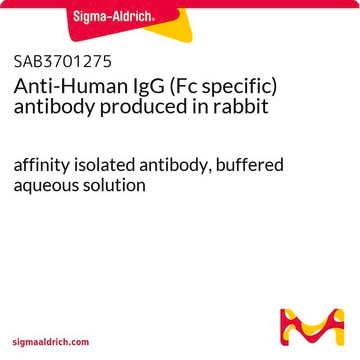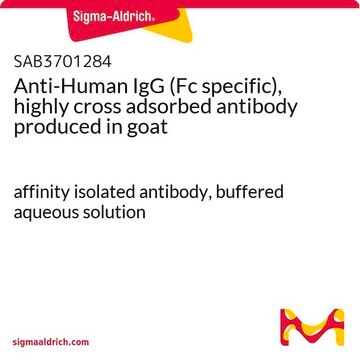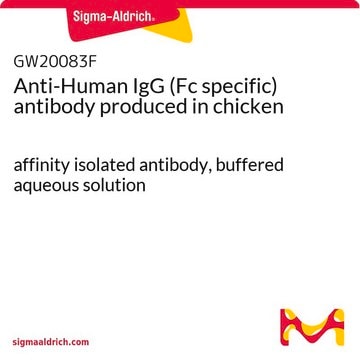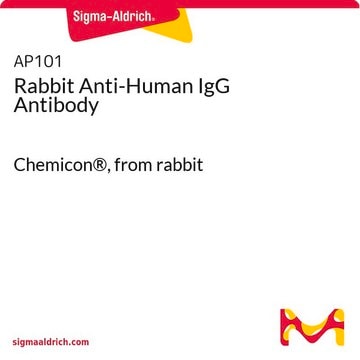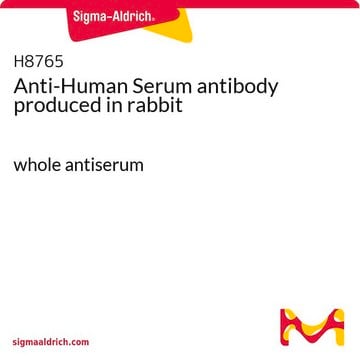I9135
Anti-Human IgG (Fc specific) antibody produced in rabbit
whole antiserum
Synonyme(s) :
Human Antiserum, Rabbit Anti Human IgG - Anti-Human IgG (Fc specific) antibody produced in rabbit, Rabbit Anti Human Igg, Rabbit Antiserum
About This Item
Produits recommandés
Source biologique
rabbit
Niveau de qualité
Conjugué
unconjugated
Forme d'anticorps
whole antiserum
Type de produit anticorps
secondary antibodies
Clone
polyclonal
Contient
15 mM sodium azide
Technique(s)
indirect ELISA: 1:100,000
quantitative precipitin assay: 1.5 mg/mL
Conditions d'expédition
dry ice
Température de stockage
−20°C
Modification post-traductionnelle de la cible
unmodified
Description générale
Application
Immunohistochemistry (1 paper)
Actions biochimiques/physiologiques
Notes préparatoires
Vous ne trouvez pas le bon produit ?
Essayez notre Outil de sélection de produits.
Code de la classe de stockage
10 - Combustible liquids
Classe de danger pour l'eau (WGK)
nwg
Point d'éclair (°F)
Not applicable
Point d'éclair (°C)
Not applicable
Certificats d'analyse (COA)
Recherchez un Certificats d'analyse (COA) en saisissant le numéro de lot du produit. Les numéros de lot figurent sur l'étiquette du produit après les mots "Lot" ou "Batch".
Déjà en possession de ce produit ?
Retrouvez la documentation relative aux produits que vous avez récemment achetés dans la Bibliothèque de documents.
Les clients ont également consulté
Notre équipe de scientifiques dispose d'une expérience dans tous les secteurs de la recherche, notamment en sciences de la vie, science des matériaux, synthèse chimique, chromatographie, analyse et dans de nombreux autres domaines..
Contacter notre Service technique